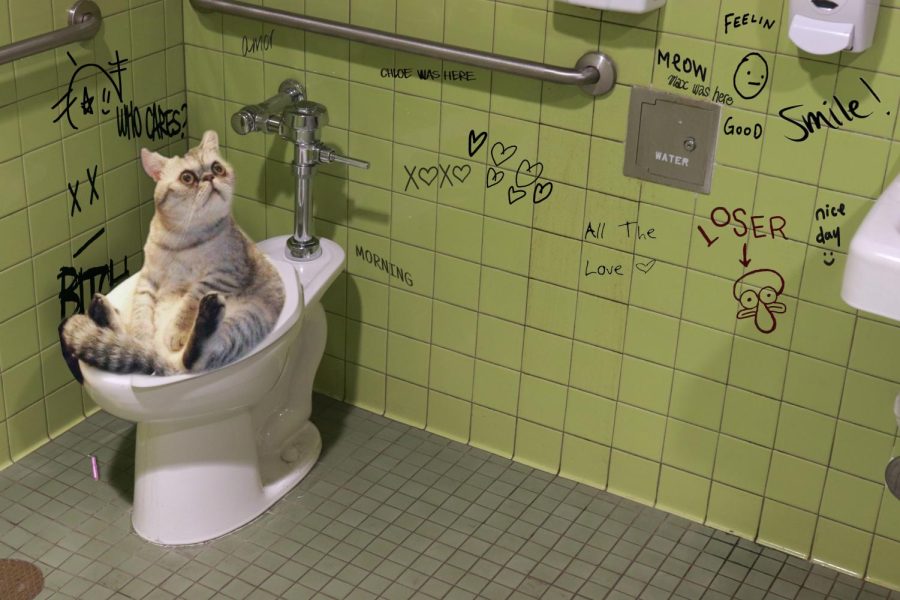Our Threats of Animal Waste in the Toilet
Our Threats of Animal Waste in the Toilet
Blog Article
We've unearthed the article relating to Don't Flush Your Pets Poo Down The Loo, Vet Warns directly below on the web and decided it made sense to share it with you in this article.

When it concerns dealing with waste, especially animal waste, lots of people often consider the hassle-free choice of flushing it down the commode. However, this seemingly simple service can have significant consequences for the environment and public health. In this short article, we'll explore why flushing pet waste down the toilet is a poor idea and offer different methods for appropriate disposal.
Introduction
Proper garbage disposal is vital for keeping environmental sustainability and public health. While it may seem safe to purge animal waste down the bathroom, it can cause various issues, both for the environment and human well-being.
Threats of flushing pet waste
Ecological impact
Flushing animal waste introduces dangerous bacteria and microorganisms right into rivers, which can negatively influence water communities. These pathogens can pollute water resources and harm marine life, interrupting fragile environments.
Public health worries
Pet waste has hazardous microorganisms such as E. coli and Salmonella, which can present major health and wellness risks to people. Purging pet waste down the bathroom can contaminate water materials, causing the spread of conditions and infections.
Alternatives to flushing
As opposed to purging animal waste down the commode, there are a number of different disposal approaches that are more environmentally friendly and hygienic.
Composting
Composting pet waste is an environment-friendly means to take care of it. By composting, raw material is broken down into nutrient-rich dirt, which can be used to feed gardens and plants.
Land fill disposal
Taking care of animal waste in a land fill is one more option. While not as environmentally friendly as composting, it is a much safer option to flushing, as it protects against the contamination of water resources.
Animal garbage disposal systems
There are specific animal waste disposal systems available that securely and hygienically throw away animal waste. These systems frequently use enzymes to break down waste and remove odors.
Steps to correct pet garbage disposal
To guarantee correct disposal of pet waste, follow these steps:
Scooping and bagging waste
Routinely scoop and bag animal waste utilizing eco-friendly bags. This protects against waste from infecting the environment.
Using designated waste bins
Dispose of bagged animal waste in designated waste containers, such as garden compost containers or garbage dump bins. Avoid flushing it down the bathroom in all expenses.
Cleaning up can and animal areas on a regular basis
Regularly clean can and animal areas to avoid the accumulation of waste and microorganisms. Usage pet-safe cleaning products to keep hygiene.
Benefits of proper disposal techniques
Adopting proper disposal techniques for animal waste uses a number of benefits:
Minimized environmental pollution
Proper disposal methods minimize the threat of environmental pollution, safeguarding rivers and ecological communities from contamination
Decreased threat of water contamination.
By staying clear of flushing pet waste down the toilet, the risk of water contamination is significantly decreased, securing public health.
Enhanced cleanliness and hygiene
Correct disposal techniques promote far better sanitation and health, producing a more secure environment for both people and animals.
Conclusion
Finally, purging animal waste down the toilet is dangerous to the setting and public health. By embracing alternative disposal methods and following proper waste administration techniques, we can lessen the adverse impact of pet waste and contribute to a cleaner, much healthier earth.
What To Do With Dog Poo – The Do's And Don'ts Of Disposing Of Faeces
Dog poo bins
Some councils provide dedicated dog waste bins in popular dog-walking areas that can take dog poo that has been bagged but you can legally dispose of dog waste in any public litter bin, as long as it is securely bagged. This also applies to your wheelie bin at home.
Do not flush
Water companies do not recommend flushing dog faeces down the toilet because certain parasites can survive the water processing treatment and are potentially harmful to humans. You should also never consider flushing dog poo that has been bagged down the toilet as the bags will not break down and instead create severe blockages in the sewage system.
In the woods
The Forestry Commission promotes a ‘stick and flick’ method for dealing with waste in the woods. This means finding a stick and using it to flick any poo from off the path so that it is out of the way of other walkers. You could also bury it as long as it is not in an area where there might be livestock.
Livestock
Parasites found in dog poo can be transmitted to livestock if they inadvertently eat infected faeces that has been left on grazing land. This could result in the death of sheep or abortion in cattle so you should always make sure you pick up your dog’s waste in fields where livestock could be present.

Do you appreciate more info about Why you should never flush dog poop down the toilet? Put a comment further down. We would be delighted to hear your thinking about this post. We hope that you visit us again before long. You should set aside a second to share this entry if you appreciated it. Many thanks for taking the time to read it.
Call Report this page